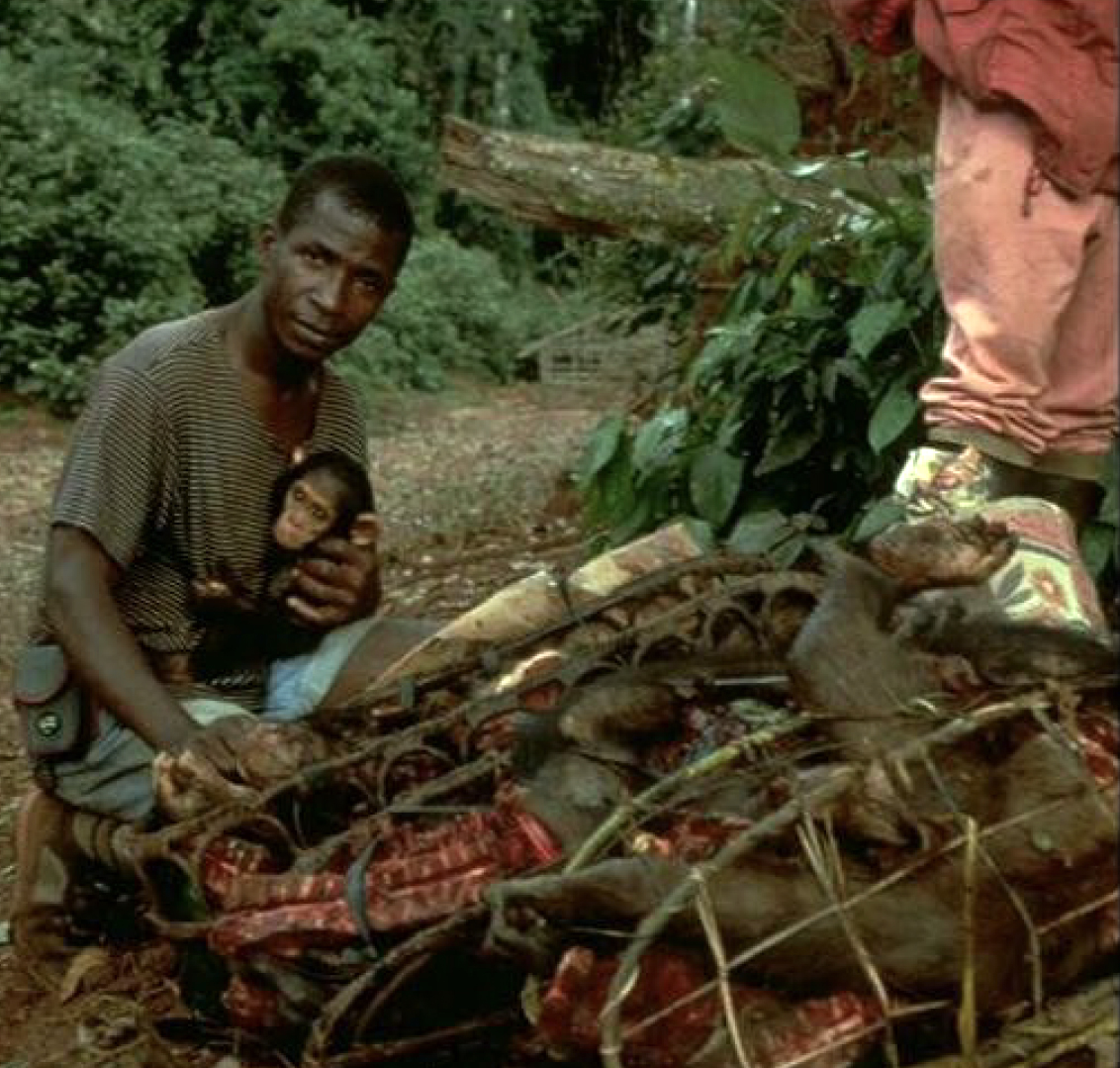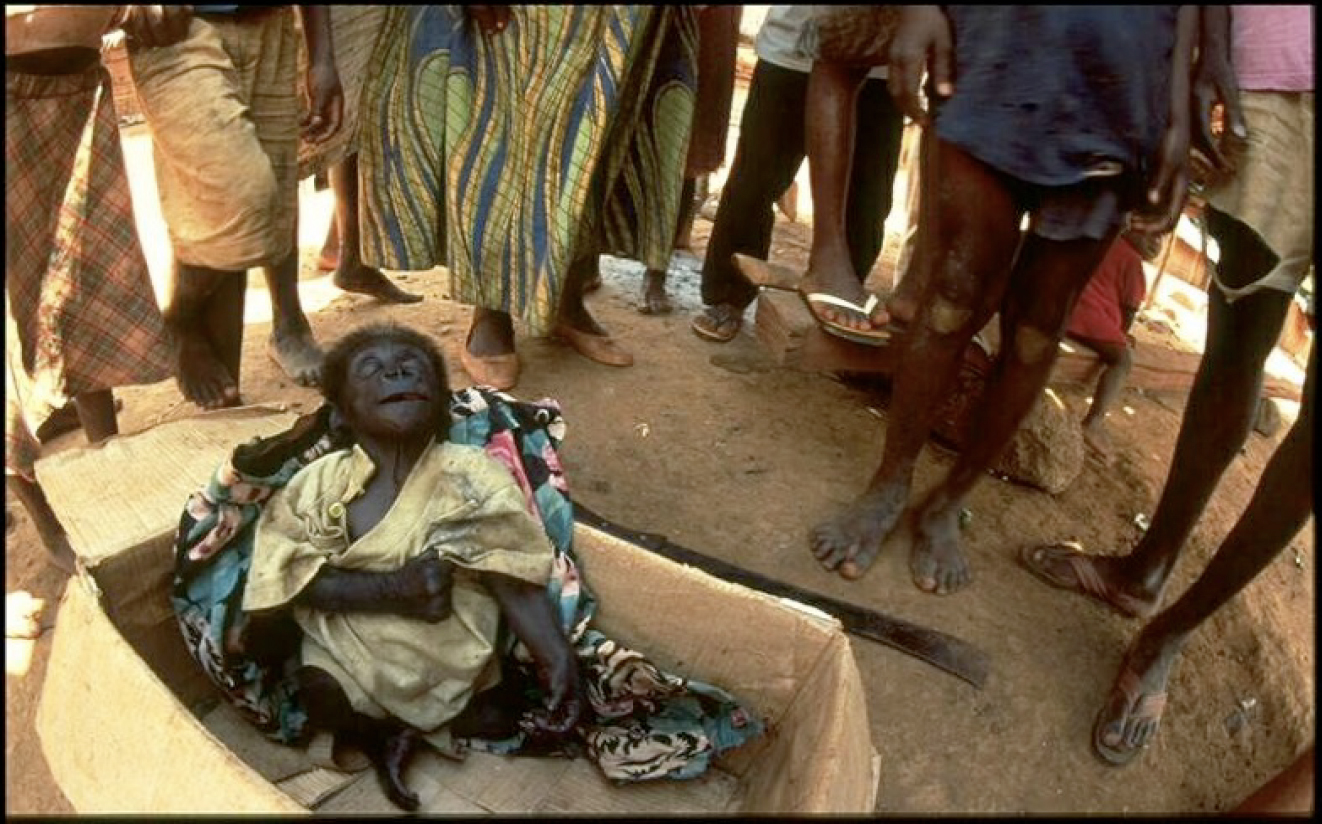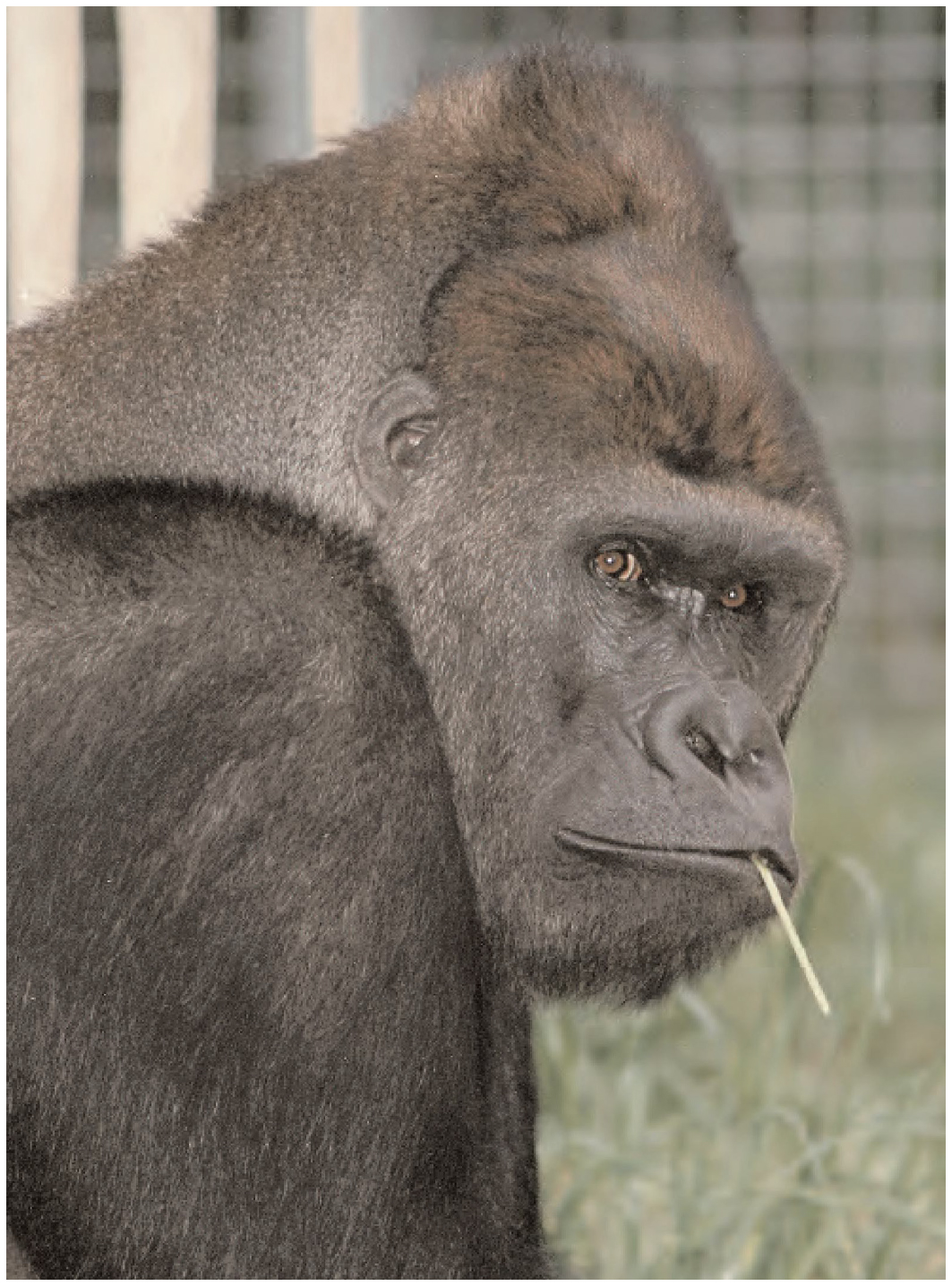Michael’s Dream < Epilogue
[ Prologue, 1, 2, 3, 4, 5, 6, 7, 8, 9, 10, 11, 12, 13, 14, 15, Epilogue ] Videos Actions
In Africa today the slaughter of great apes for meat is a big business. Although it is illegal, people break the law so they can sell gorilla met for the feast table. Most consumers don’t know how smart, sociable, and sensitive apes are. Hunters shoot any apes they cn find, including the infants. But sometimes a baby, like Michael, is spared the bullet. Gorilla babies, if they live, are found clinging to their mother’s dead bodies and have to be pried oose — usually by the man who pulled the trigger. Imagine the infant ape’s terror — an unforgettable trauma.

Thousands of orphan apes die in villages and homes across equatorial Africa every year. There are not nearly enough programs to rescue and give sanctuary to these unfortunates. Knowing how much these young apes feel and remember, we cannot sit back and let them die trembling in terror, or live in trauma. They need the same support as human orphans, and as Michael was given when he joined Koko.

But the larger challenge is to protect the gorillas who are being hunted in African rainforests. For every orphan ape who survives in an African sanctuary or zoo, at least twenty adult apes are slaughtered in the forest and butchered for sale. Timber and mining companies from around the world cut new roads into pristine landscapes, destroying flora and enabling poachers to empty the forests of wildlife. This must be stopped if Africa’s natural heritage is to remain.
Michael’s story can have a sustained impact on people who live in gorilla habitat regions. Discovering that monkeys, like Snicky, bond emotionally with researchers has changed the way laboratory science is practiced. When the African people realize that the great apes in their forests remember the details of their childhood experiences for a lifetime, just as humans do, the practice of hunting apes and destroying their homelands will also change.
Michael suffered a trauma caused by careless humans who invaded his childhood home, and he came to love the caring humans who gave him a new home. Like Penny, Ron, and the many others who lived with Michael, local people who live in the forests of Africa are crucial to the safety and health of wild gorillas. With repeated telling, the story of Michael will inspire local people’s personal compassion and community commitment to live in biosynergy (the inner force that compels each and every individual being to collaborate with others for the greater good) with their great ape neighbors.

The Gorilla Foundation is committed to help the people of Africa to move from acknowledgment of Michael’s nightmare to realizations of Michael’s dream. As MIchael displayed throughout his life, we are most noble when we act bravely out of compassion for the biosynergy of all living beings. If we promote compassion and biosynergy in our local communities and our regional ecosystems, the people and great apes who live in African rainforests will begin to thrive again.
Please join us in pursuit of Compassionate Conservation, for the good of all!
— Anthony L. Rose, Ph.D.
The Biosynergy Institute, Palos Verdes, California USA
— Francine “Penny” Patterson, Ph.D.
The Gorilla Foundation, Woodside, California USA
Photos by Ron Cohn, Karl Ammann, Anthony Rose and Shim Schimmel
Support The Gorilla Foundation and the Biosynergy Institute by supporting Kids4Koko.
As a “Kid for Koko,” you are the key to waking people up to the importance of treating other intelligent species and our planet with love and respect, and ensuring a brighter future for all.
If you agree, please sign the Kids4Koko Pledge and share with your friends.
© 2024 The Gorilla Foundation / Koko.org